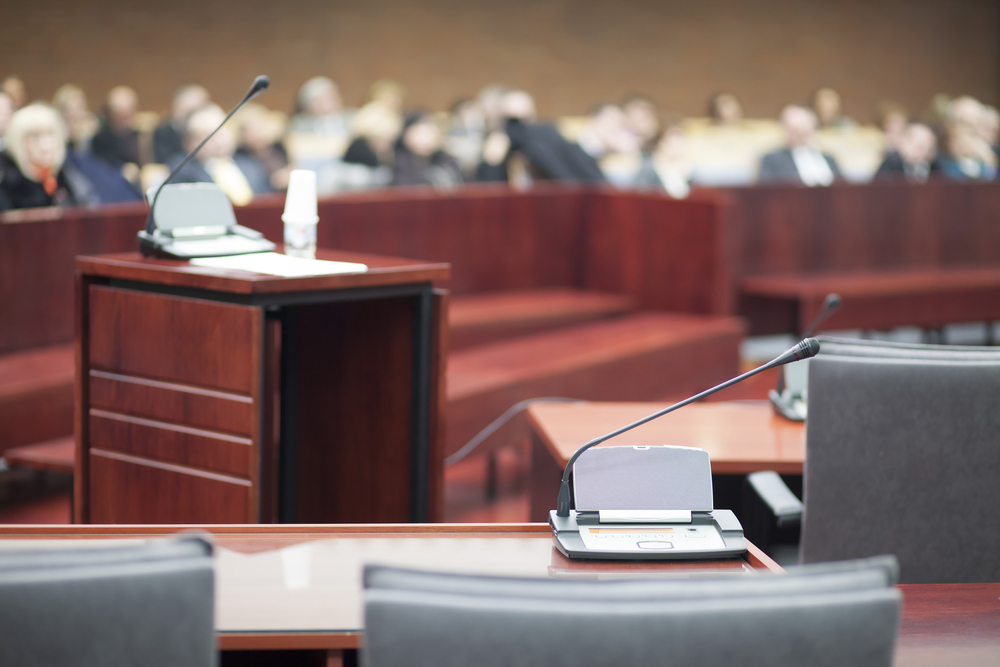Under the Federal Rules of Evidence, if you need to support your litigation with an expert witness, you must show in a hearing that your witness’ expert opinion is admissible in court. If you are litigating your case in Florida, the rules have just changed, quite possibly in your favor, thanks to the Florida Supreme Court’s ruling in In re Amendments to the Florida Evidence Code.[1]
For 70 years, federal and state courts relied on a case dating from 1923, Frye v. United States,[2] which set the gold standard for determining expert witness admissibility: was the expert opinion in question generally accepted in the scientific community?
However, in 1993, the U.S. Supreme Court heard Daubert v. Merrell Dow,[3] which changed the evidence game considerably. Instead of relying on “general acceptance of the scientific community,” Daubert and its progeny set forth a list of factors that the testimony needed to meet in order pass judicial muster:
- Whether the theory or technique in question can be and has been tested;
- whether it has been subjected to peer review and publication;
- its known or potential error rate;
- the existence and maintenance of standards controlling its operation; and
- whether it has attracted widespread acceptance within a relevant scientific community.[4]
Over half of the states in the country, as well as the federal courts, have adopted Daubert as their standard of evidence for expert witness testimony. While Florida’s legislature had codified Daubert, the state’s highest court continued to rely on Frye, which made trying cases requiring expert witness testimony challenging, at best.
In November 2018, in DeLisle v. Crane Co.,[5] the Florida supreme court had upheld the Frye test, asserting that the legislature’s adoption of Daubert had encroached on the court’s constitutional authority. With its decision in In re Amendments to the Florida Evidence Code, the Florida supreme court doesn’t just bring the state’s legislative and judicial perspectives into alignment, but delineates the shortcomings inherent in the Frye standard, with its bias toward science. Daubert created a standard that extends to experts in all fields, which provides jurisprudence with consistency and predictability.
By joining with other state and federal courts, the Florida supreme court recognizes the importance of stringent evidentiary thresholds for the admissibility of expert witness testimony. While such standards are routinely applied to overtly scientific testimony, Daubert challenges are emerging as a common tactic in medical negligence and personal injury cases as well. Nonetheless, the application of Daubert has proven challenging in medical litigation since core science is more objectively verifiable than the art of medicine. For example, in Seifert v. Balink,[6] the Wisconsin supreme court ruled in a 5-2 majority opinion that an expert’s testimony was admissible under Wisconsin’s nominally modified Daubert reliability standard.[7] Writing for the lead, Chief Justice Shirley Abrahamson opined that “…case law teaches that Daubert’s role of ensuring that the courtroom door remains closed to junk science is not served by excluding medical expert testimony that is supported by extensive relevant medical experience.”
By upholding the trial court’s Daubert ruling to allow the testimony of a medical expert challenged by the defense, the court astutely noted that the practice of medicine involves clinical judgement and medical decision-making that may not practicably align with strict scientific principles.
[1] In re Amendments to the Florida Evidence Code,
[2] Frye v. United States, 295 F. 1023 (D.C. Cir. 1923).
[3] Daubert v. Merrell Dow Pharmaceuticals, Inc., 509 U.S. 579 (1993). Daubert was codified in the Federal Rules of Evidence.
[4] Daubert was succeeded by General Elec. Co. v. Joiner, 22 U.S. 136 (1997) and Kumho Tire Co. v. Carmichael, 26 U.S. 137 (1999), both of which expanded Daubert’s test, including to experts outside the field of science.
[5] DeLisle v. Crane Co., No. SC16-2182 (Fla. Oct. 25, 2018).
[6] Seifert v. Balink, 2017 WI 2 (Jan. 6, 2017).
[7] See Wis. Stat. §907.02(1).

